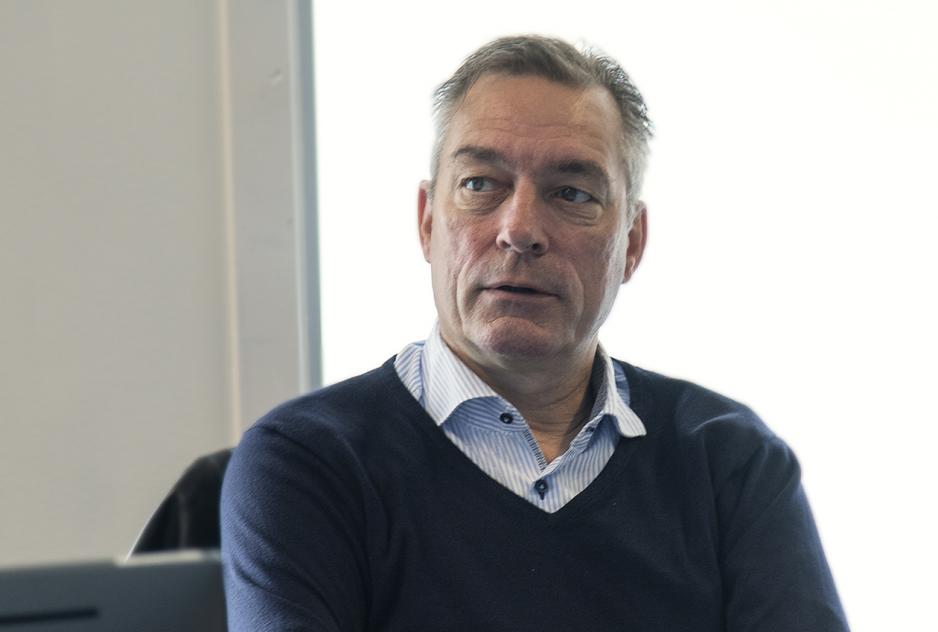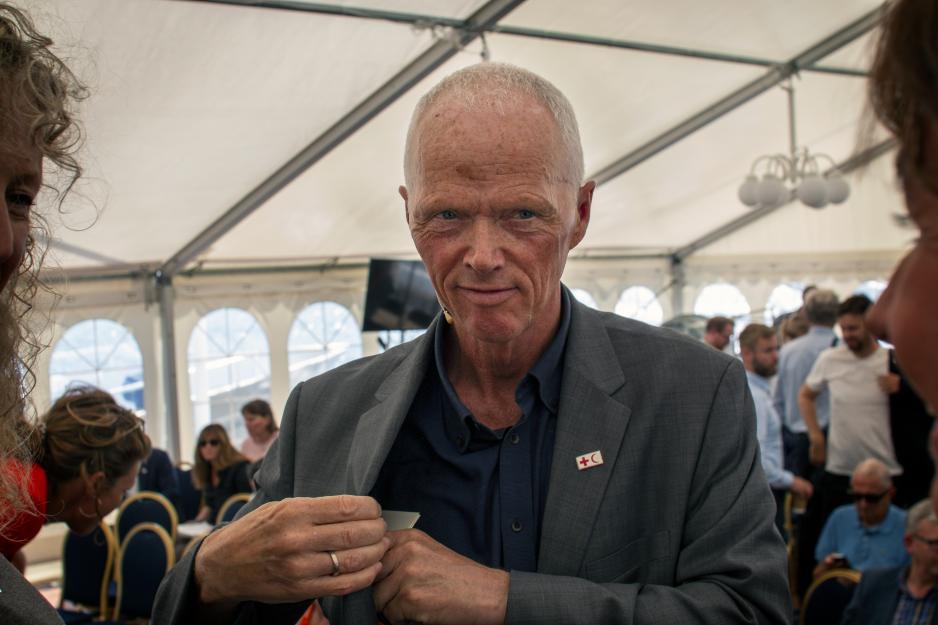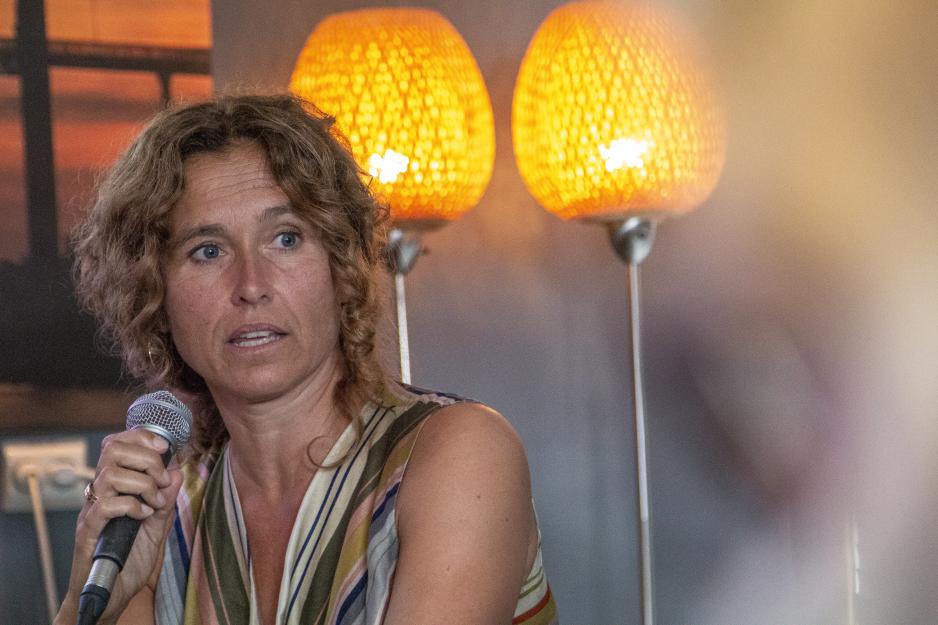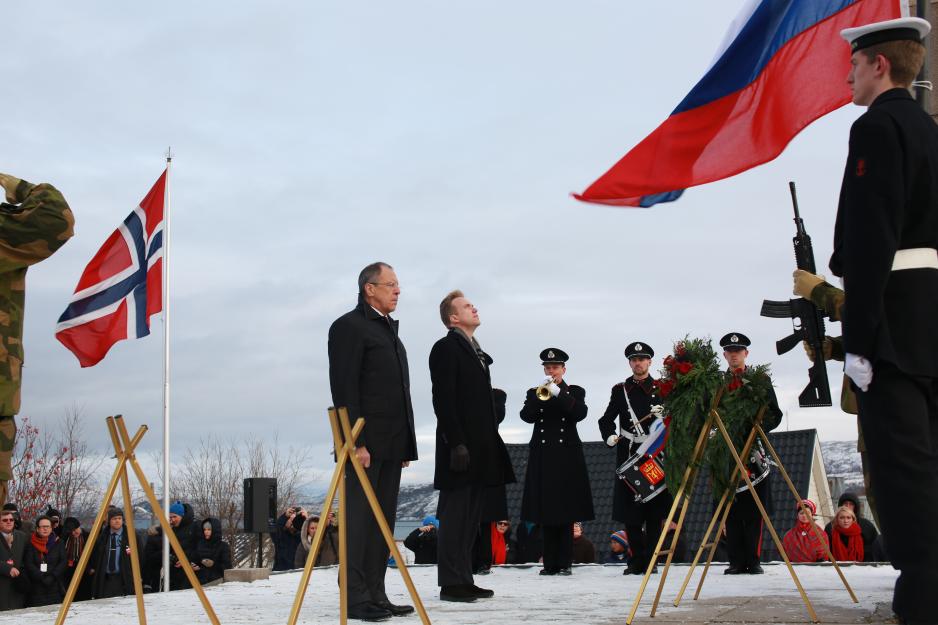Norwegian Defense Minister About Robert Mood’s Criticism: He Misses the Target

Norwegian Defense Minister Frank Bakke-Jensen refutes recent criticism from Robert Mood and Julie Wilhelmsen. (Photo: Svein-Arnt Eriksen/Nord University)
Norwegian Defense Minister Frank Bakke-Jensen argues that Robert Mood demonstrates a lack of understanding for the different political roles of Stortinget, the Norwegian parliament. – Everyone is not supposed to have thorough knowledge about the Norwegian security situation, he says.
- Russian intelligence services know our weaknesses better than most MP’s, Robert Mood said to High North News last week.
- Mood has demonstrated, also through a book, that his understanding of the political role of Stortinget and its various political roles is found wanting and even lacking in parts, so his fabulations completely miss the target, Defense Minister Frank Bakke-Jensen (Conservatives) respons. However, he stresses:
- Not everyone in parliament is supposed to have thorough knowledge of Norway’s security situation.
- Those who need to know, know
The retired Lieutenant-General also describes the intelligence services in Moscow as well as in allied capitals as good at finding the weaknesses in others, and he argues that this knowledge is not good enough in the Norwegian intelligence community.
- All countries have intelligence services, however, believing that this is knowledge meant for all MP’s goes more to speak about Robert Mood’s lack of understanding of how society is wired, says Bakke-Jensen and assures us:
- Those who need to know, know. And those assigned with that task at Stortinget also hold that knowledge.

Robert Mood during the Arendal Week 2019. (Photo: Amund Trellevik)
Robert Mood fears that the Norwegian total dependence on NATO and the USA may be what pulls Norway into a larger conflict.
- Is Norway too dependent on NATO and the USA?
- No, I think we are balancing this rather well. In 1949 we decided that we would not be able to defend ourselves on our own, so we joined NATO, the world’s most successful defense alliance, and we built the defense of Norway on two pillars; one independent Norwegian defense and also a credible partner in the NATO alliance, says Bakke-Jensen.
Solid deterrence
Researcher at the Norwegian Institute of Foreign Affairs (NUPI), Julie Wilhelmsen, reacts negatively to Norwegian authorities' claiming not to understand the rationale behind increased Russian activity along the Norwegian coast. She argues that the increased military assertion simply can be explained as a response to a development that the Russians do not want and that they have warned against; increased [Norwegian] military cooperation with the USA through e.g. the Trident Juncture exercise.
It is any country’s independent right to choose what defense association it wants to be part of.
- It is any country’s independent right to chose what defense association it wants to be part of, the Defense Minister says and continues: - We have made our choice and it is a choice we are most comfortable with. We also, at the same time, try to maintain a line of transparency towards Russia in order to maintain good neighborly relations in a way that Russia may also learn something from. However, we also stand firmly planted within the NATO alliance and we do not only exercise with the USA; our exercises involve a series of countries. That is so because we want to be sure that we can interact well and it also provides solid deterrence.
Understands that Russians react
- Do you understand that the Russians react the way they do?
- Yes, from a strictly military point of view I can understand that. However, it is also the case that the Russians easily could demonstrate more transparency about her exercise pattern and her way of exercising. That would build better neighborly relations.
Wilhelmsen also criticizes Norwegian authorities for not listening enough to what the Russians are saying and says both countries have a tendency to “blame each other”.

Julie Wilhelmsen of NUPI, the Norwegian Institute of International Relations. (Photo: Amund Trellevik)
- Are we monitoring what is said and written by our eastern neighbor well enough?
- Yes.
- So you do not share the NUPI researcher’s worries?
- No, on the contrary, says the Minister. – I quite often disagree with Wilhelmsen’s statements.
Should not surprise anyone
- How can the relationship between Norway and Russia improve?
- In many ways, we already have a good relationship, though it should not surprise Russia that we have to respond to violations of public international law. Norway is a small country and thus very dependent on a world order ruled by law. The fact that we, along with those with whom we’ve formed a shared set of values following WW2, react to violations of public international law should not surprise anyone, and we have stated that, Bakke-Jensen says while stressing:
The fact that we react to violations of public international law should not surprise anyone
- Nevertheless, we cooperate very well with Russia in most areas. We cooperate about fisheries management, about search and rescue in the High North, about nuclear security, and not to forget on a people-to-people level. There is thus a duality in our relationship that balances the fact that we have a major power as our eastern neighbor with good neighborly relations. And we will keep developing that.
Will show gratitude
On 25 October, Bakke-Jensen travels to Kirkenes to attend the 75th anniversary event of the liberation of east Finnmark.
- What will your message at the anniversary event be?
- It will be that we are both marking the end of WW2 as well as a successful allied cooperation in which man countries joined forces to get rid of the Nazi regime. With allies, I refer to both the USA, Great Britain, the Soviet Union as well as many other small nations. We are also commemorating an awful autumn for Finnmark, one in which Finnmark County as well as northern parts of Troms County were virtually burned down and large parts of their population was forced to evacuate. We are celebrating the efforts from larger and smaller, both partisans and other resistance movements. And we celebrate that forces from the Soviet Union contributed to the liberation of Finnmark and we will demonstrate our gratitude for that.

The Norwegian and the Russian Minister of Foreign Affairs lay down wreaths in 2014 at the memorial for the Soviet liberation of Kirkenes. The history conference organized by Finnmark County at the 75th anniversary of the liberation of eastern Finnmark will not have top-level political attendance. (Photo: The Barents Secretariat)
Bakke-Jensen was originally also invited to open a history conference on 23 October, related to the event, however, the Minister has other assignments on that day.
Putin invites Heads of States to liberation march
Russian President Vladimir Putin visited France and President Emmanuel Macron this week. Macron has earlier confirmed that he will attend the victory march that is to be held in Moscow on 9 May 2020, according to Tass.
US President Donald Trump has also been invited to the march.
- Frank Bakke-Jensen, are you going?
- I have not decided yet.
There is a duality in our relationship with Russia that balances the fact that we have a major power as our eastern neighbor with good neighborly relations
This article was originally published in Norwegian and has been translated by HNN's Elisabeth Bergquist.
